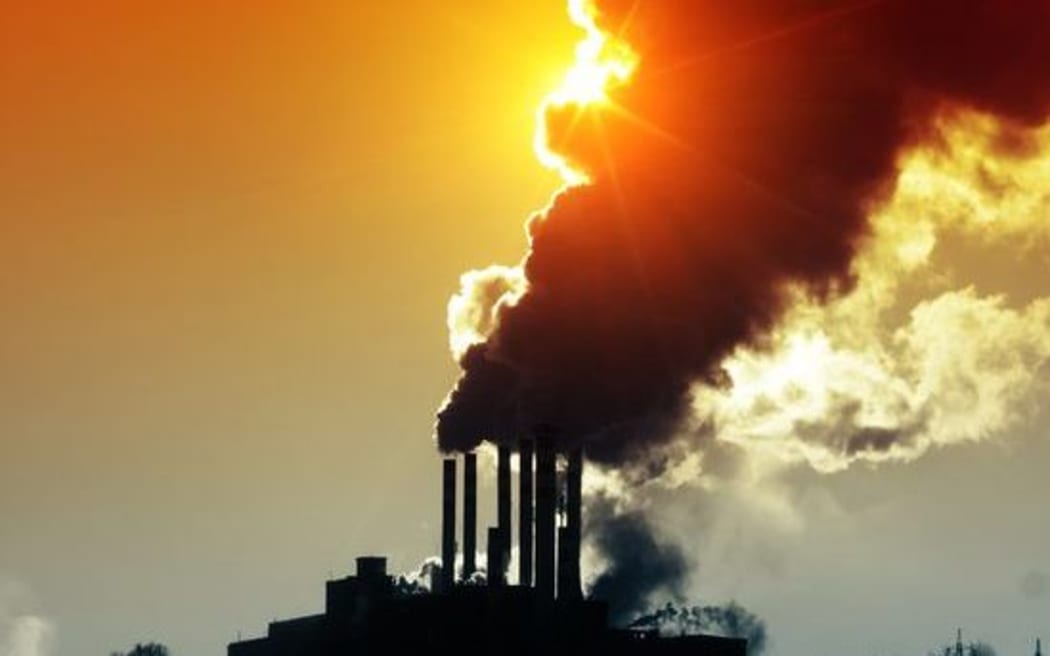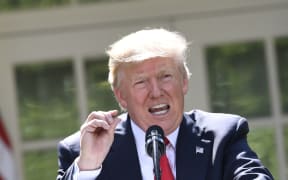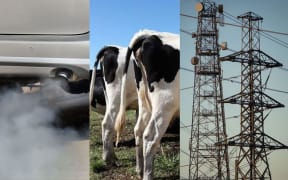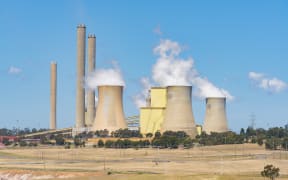The US decision to pull out of the Paris climate deal is a "big negative" but won't alter the long-term outcomes, the New Zealand Climate Change Research Institute director says.
President Donald Trump this morning confirmed the US was "getting out" of the climate change pact and may begin negotiations for a better deal.

The US accounts for more than 15 percent of the total worldwide greenhouse gas emissions. Photo: 123rf
The US accounts for more than 15 percent of the total worldwide emissions, and is exceeded only by China.
Under former President Barack Obama, the US committed to reduce its emissions by 26 percent to 28 percent from 2005 levels by 2025.
Climate Change Research Institute director David Frame said Mr Trump's decision was a "slap in the face for younger generations", who would experience the costs of climate change.
It was also a "wink and a nod" to other fossil fuel recalcitrants, like Russia and Saudi Arabia, that it was acceptable to renege on climate change accords.
But the defection of any one player - even the world's second largest emitter - would not radically alter things. The US would still make progress on emissions reductions because natural gas was displacing coal.
Formally withdrawing from the process would take some time. "There are elements he can walk away from... but there's a delay on these things, he can't actually just turn around and say 'we're out' as of today completely."

Climate Change Minister Paula Bennett Photo: RNZ / Cole Eastham-Farrelly
New Zealand has committed to reducing emissions by 30 percent below 2005 levels by 2030.
Climate Change Minister Paula Bennett said the US was an important part of the agreement.
"I do think it's a step backwards."
But New Zealand was still committed to the agreement and the accord was still intact.
"Other countries all feel very strongly committed, and that won't waver."
Discussions on the rules would continue, she said.
Mrs Bennett told Morning Report action on climate change can create jobs, not take them away, and she did not think US involvement in the deal would have disadvantaged the US in the way Mr Trump had suggested.
Labour Party leader Andrew Little said action on climate change would survive the Trump administration.
He said the US president's move to leave the Paris climate agreement was a bump in the road.
"This is an issue that will survive Donald Trump because it is a long-term project to reduce carbon emissions and deal with climate change and take our planet back ... I don't think we should see this as a catastrophe."
Mr Little said the New Zealand government must now stand behind the rest of the world on the Paris accord.
Green Party co-leader James Shaw said the US decision was a retrograde step but the rest of the world would keep calm and carry on.
Mr Shaw told Morning Report the economics of tackling climate change were moving much faster than the politics.
There had been a colossal movement of investment flows from greenhouse gas-emitting industries since the Paris agreement was signed. Investors thought in longer-term cycles than a US presidential four-year period, he said, so many businesses would be looking beyond the Trump administration.
Mr Shaw said the majority opinion was that the Trump administration was a "temporary aberration - that it'll be lucky to last four years, and certainly not eight" and afterwards the US would rejoin the agreement.
The pact provided businesses with certainty, which is what they want, he said.
British environmentalist Sir Jonathon Porritt said the climate agreement was bigger than just one president.
He told Nine to Noon he believed Americans would now take a different approach and say 'we may not be in the Paris accord but we're going to go absolutely full bore and go for low carbon prosperity the rest of the world is pursuing'.
Individual US states had incredible powers in determining the allocation of state resources and levels of energy efficiency, and a growing number of states and cities were coming out against the decision to leave the agreement.




